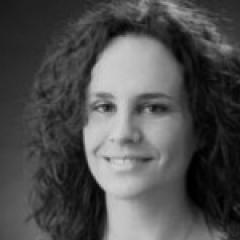Teaching/Math/Culture: Professional Development is Broken, But Be Careful How We Fix It
[see Twitter for further exchanges]
He then asked if I could share some of my research to back my perspective. I sent him an email with journal articles and such, but I thought I would share my ideas with y’all too.
Here is my argument about why putting professional development (PD) back in schools may be necessary but not sufficient to improving its impact on teachers’ instruction.
Unlike medicine and other scientific fields, where problems are taken-as-shared and protocols for addressing problems are roughly agreed upon, teaching problems are locally defined. What needs attention in one school may not need attention in another. For instance, some schools’ “best practices” may center on adapting instruction to English learners, while other schools’ might center on the mental health ailments that have become prevalent among affluent teens. Likewise, other professions share language, representations, and goals for critical aspects of their work — these all important resources for learning together. In teaching, we see repeatedly that terms acquire the meaning of their setting more often than they bring new meanings to these places. Take, for instance, Carol Dweck’s ideas about mindset. The various ways that her construct has taken hold in education led her to explain why what she means by mindset is not how the idea is being used. If we leave professional development entirely up to individual school sites, this means that “doing PD” on Topic X probably looks fairly different from place to place, so radically localized professional development will exacerbate this problem.
Leaving professional development to local sites also limits teachers’ access to expertise.When my colleagues and I have studied teachers’ collaborative learning, we found that the learning opportunities are not equally distributed across all teacher groups. Some of this has to do with how teachers spend their time (e.g., focused on logistics or deeper analysis of teaching). But some of it has to do with who is sitting around the table and what they have been tasked to do.
Teachers’ collaborative learning can be described as an accumulated advantage phenomenon, where the rich get richer. That is, teachers who have sophisticated notions of practice are able to identify teaching problems in complex ways and deploy more sophisticated strategies for addressing them. This follows from my previous points, since problem definition is an important part of teachers’ on-the-job learning. For instance, if we have a lot of students failing a course, how do we get to the bottom of this issue? In many places, high failure rates are interpreted as a student quality problem. In others, they are taken as a teaching quality problem. Interpretations depend on how practitioners think this whole teaching and learning business goes down. In other words, problem definition is rooted in teachers’ existing conceptions of their work, which in other professions, are codified and disseminated through standardized use of language and representations.
Unequal access to expertise is only one of many reasons the optimistic premise of teacher community often does not pan out. There is a tendency to valorize practicing teachers’ knowledge, and, no doubt, there is something to be learned in the wisdom of practice. That being said, professions and professionals have blind spots, and with the large-scale patterns of unequal achievement we have in the United States, we can infer that students from historically marginalized groups frequently live in these professional blind spots. For reasons of equity alone, it is imperative to develop even our best practitioners beyond their current level by giving them access to more expert others.
Even in highly collaborative, well-intentioned teacher communities, otherinstitutional pressures (e.g., covering curriculum, planning lessons) pull teachers’ attention to the nuts-and-bolts of their work, rather than broader learning or improvement agendas. Add to this the norms of privacy and non-interference that characterize teachers’ work, you can see why deeper conversations around issues of teaching and learning are difficult to come by.
What about, you might say, bringing in expert coaches? Research shows that expert facilitators or coaches can make a difference. In fact, there is evidence that having expert coaches may matter more than expert colleagues when it comes to teacher development. At the same time, we suspect that expert facilitators are necessary but not sufficient, as coaches often get pulled into other tasks that do not fully utilize their expertise. In our current study, we see accomplished coaches filling in for missing substitute teachers, collating exams, or working on classroom management with struggling teachers. None of these tasks taps into their sophisticated instructional knowledge. Additionally, being an accomplished teacher does not guarantee you have the skill to communicate your teaching to others. In our data, we have numerous examples of really great teachers underexplaining their teaching to others.
Lee Shulman famously called out the missing paradigm of teacher knowledge, giving rise to a lot of research on pedagogical content knowledge (PCK). While PCK gave a very useful way to think about teachers’ specialized knowledge, little progress has been made on understanding how teachers develop this and other forms of knowledge, particularly in the institutional context of schools, which often presses teachers’ practice away from what might be deemed “good teaching.” As long as we don’t have strong frameworks for understanding how teachers learn, PD –– even localized, teacher-led PD –– risks being just another set of activities with little influence on practice.
This blog post has been shared by permission from the author.
Readers wishing to comment on the content are encouraged to do so via the link to the original post.
Find the original post here:
The views expressed by the blogger are not necessarily those of NEPC.
